Oklahoma’s new Native affairs liaison says he’ll repair relations. Critics doubt it

- Oops!Something went wrong.Please try again later.
When lawmakers disbanded Oklahoma’s longtime Indian Affairs Commission in 2011, they said they wanted to create something better. They envisioned a liaison who would advise the governor, consult with tribes and help resolve conflicts before they spiraled into court.
That has not been the reality under Gov. Kevin Stitt, a Cherokee Nation citizen. His first Native affairs adviser resigned in protest months after taking office. And it wasn’t until nearly four years later, on Sept. 5, that Stitt appointed another liaison to focus solely on tribal affairs. During the interim, state-tribal relations deteriorated to the point the tensions routinely made national news.
The governor’s new Native affairs liaison, Wes Nofire, says he plans to extend olive branches to tribal leaders. Stitt said he believes Nofire, a former Cherokee Nation council member who backed his reelection campaign, is the “ideal choice” for the job.
But some people who worked closely with Nofire in the past are skeptical he will advocate on behalf of tribal nations. They see his appointment as yet another roadblock to finding common ground.
“He has been very, very clear that he is anti-tribe and anti-tribal sovereignty,” said Candessa Tehee, who teaches Cherokee and Indigenous studies at Northeastern State University in Tahlequah, where the Cherokee Nation is headquartered.
Tehee served with Nofire on the Cherokee Nation council until recently and has been outspoken about how divisive she believes him to be. According to the Cherokee Phoenix, the tribe’s newspaper, Nofire has questioned the legal standing of Cherokee courts, described the recognition of tribal reservations as a threat and falsely claimed the tribe’s top elected official and its business arm were involved in child trafficking.
More: Clash over jurisdiction: What tribal leaders, Gov. Stitt, others say will move Oklahoma forward
In June, Nofire lost the race to become the Cherokee Nation's next principal chief. Weeks later, he wrote a letter to an Adair County newspaper, drawing comparisons between Cherokee leadership and a beast sent by the devil during the biblical end times.
“We even worship these elected officials that are part of the beast, lest we be ‘slain’ by them,” Nofire wrote in the July 21 letter published in the Straight Forward Free Press. The paper is published in Stilwell, near where Nofire was raised and resides.
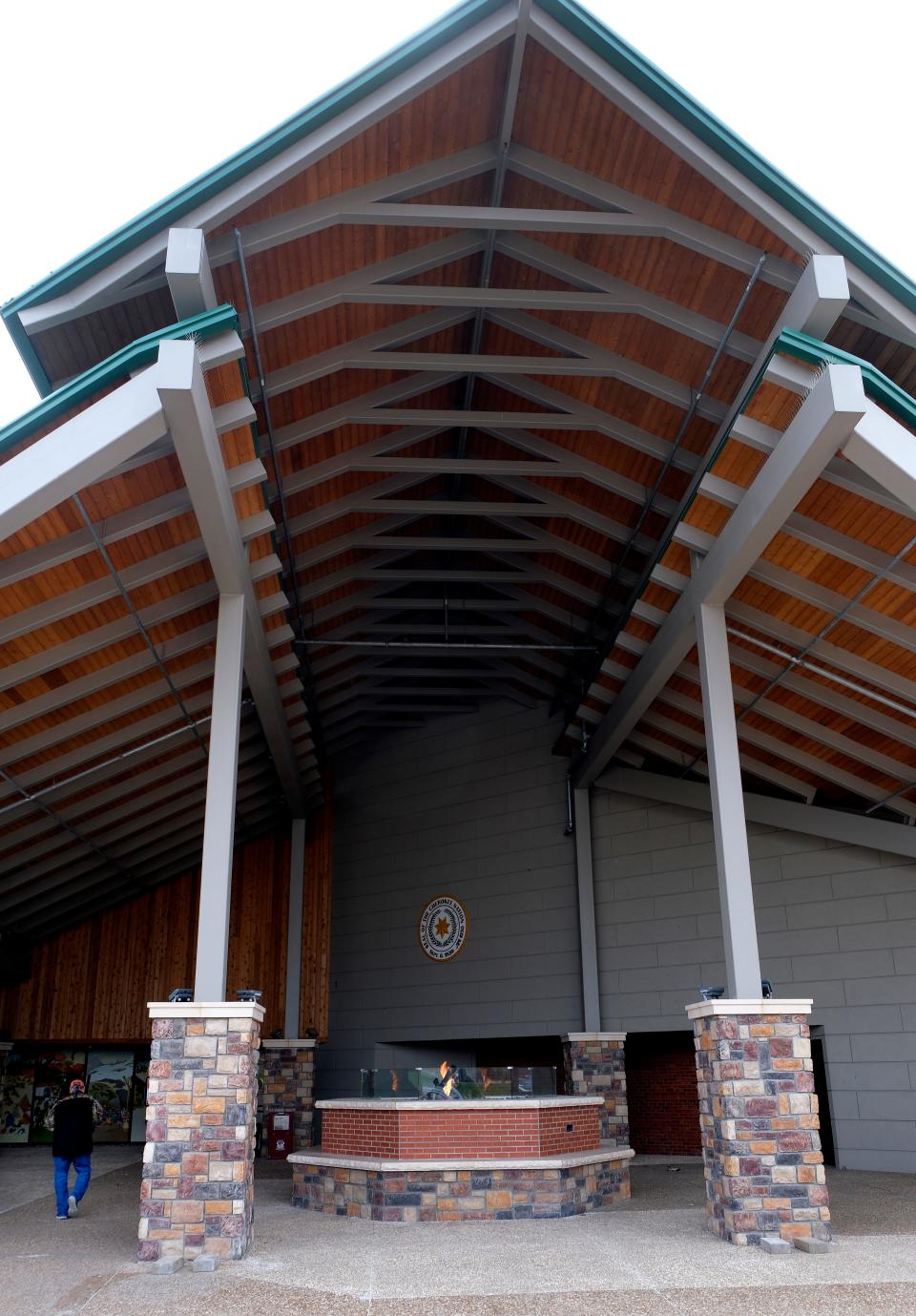
'That seems like an irreconcilable difference'
In an interview with The Oklahoman, Nofire said he was sharing his spiritual views as a private citizen and declined to provide further explanation about the letter. He said he recognizes the rights of tribal governments. And he said he would put old political differences aside as a new state official.
“We’ve got to focus on this state and our tribal partnerships, our citizens as a whole, so we can be very successful together,” he said. “I think that’s the partnership that I’m looking forward to, to bridging that gap between everybody.”
But Cherokee Nation Principal Chief Chuck Hoskin Jr. does not believe that’s possible. Nofire will only further erode state-tribal relations, he said.
“It’s difficult for me to imagine a public official who is tasked with building bridges with the Cherokee Nation, among other tribes, yet at the same time has a deeply held belief that we are operating under the control of Satan,” said Hoskin, who defeated Nofire by a wide margin in the tribe’s June elections. “That seems like an irreconcilable difference that disables him from service.”
More: What Cherokee leaders say Oklahoma's governor got 'wildly' wrong about tribal elections
Apart from Nofire’s rhetoric, Hoskin questioned the liaison’s knowledge of Native American law and issues. Nofire, however, said his deep connections within the Cherokee Nation and other tribal communities will help him make immediate in-roads in his new job.
When asked about the key policy issues he would focus on, Nofire did not provide specifics. He said he would prioritize improving relationships and making state government more accessible and transparent to tribal leaders and citizens. He said he plans to split his time between the Oklahoma Capitol and his home, which he described as a “great meeting ground,” given the area’s dense Cherokee population and connection to Cherokee culture.
“The whole focus is going to be able to make sure that we’re successful as a state,” Nofire said. “To be successful as a state, that means we have partners. And we kind of go hand in hand. Successful tribes, successful state. Failures on either front mean that we’re all going to fail together.”
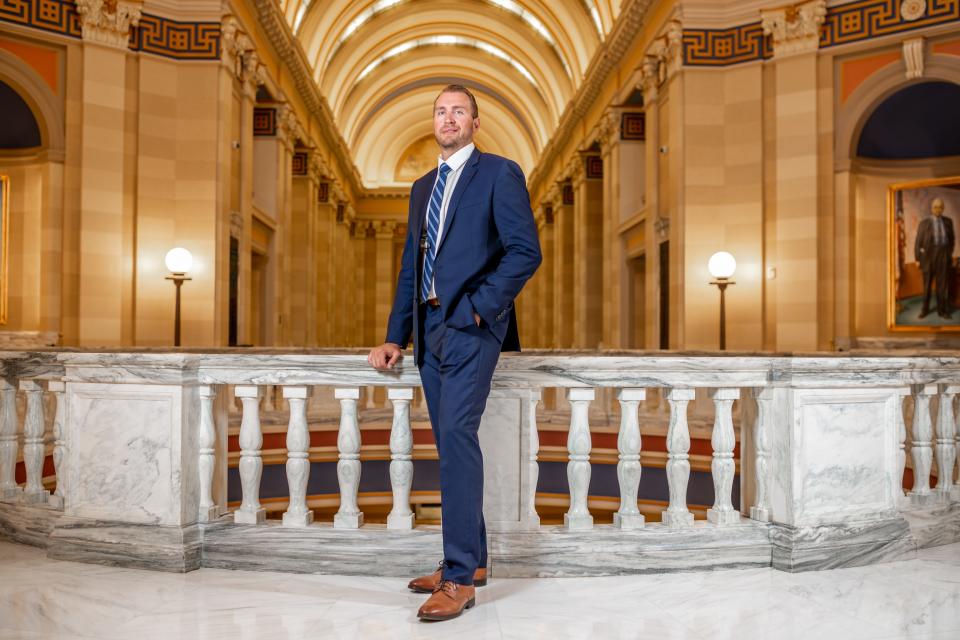
A disconnect between Gov. Kevin Stitt, Oklahoma tribes
The biggest disconnect between Stitt and many tribal leaders stems from McGirt v. Oklahoma, the landmark 2020 Supreme Court ruling that has led to the affirmation of eight tribal reservations in the state, including that of the Cherokee Nation.
The governor has resisted any loss of state authority on those lands. But federal law generally recognizes that states have limited power over tribal citizens on tribal lands. Tribal governments and federal officials have been expanding their criminal justice systems to prosecute the cases the state no longer can.
McGirt v. Oklahoma, 3 years later: How police work on the Muscogee Nation reservation
Stitt has worried Oklahoma could further lose the power to tax tribal citizens and regulate civil matters on the reservations. He’s become increasingly vocal about his objections, saying he is working to represent the interests of all 4 million Oklahomans.
Nofire repeatedly expressed the same goal. He said he would prioritize “putting the politics aside and putting the people back up front and making sure we all represent all 4 million Oklahomans.”
Tehee said she believes Nofire’s appointment will create an echo chamber in the governor’s office, rather than a deeper understanding of tribal nations.
“His inclusion of Mr. Nofire in an advisory position, when Mr. Nofire is simply parroting back what Governor Stitt is seeking to hear, does nothing to facilitate a working relationship, which is what needs to happen,” Tehee said.
How Oklahoma lawmakers established the liaison position
Being neutral is a key part of being a liaison, said Jacque Secondine Hensley, Oklahoma’s first Native American liaison. She was appointed by then-Gov. Mary Fallin after lawmakers wrote the liaison position into law in 2011. She served in the role for almost three years.
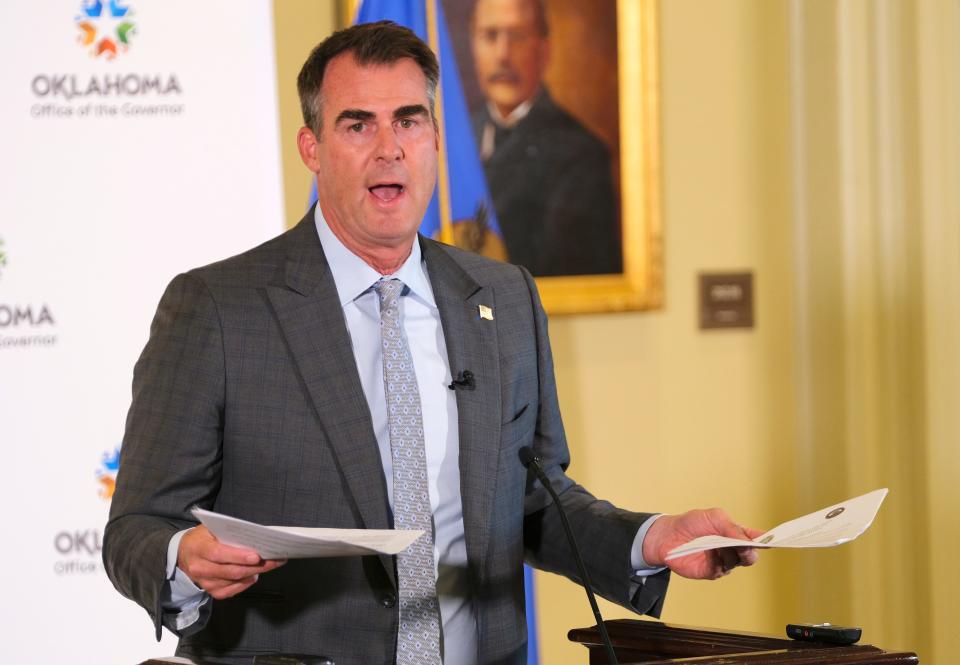
By law, the liaison works on tribal relations and Native American issues assigned by the governor and monitors how state agencies work with tribal governments. Secondine Hensley said she routinely talked with Fallin, tribal leaders and agency executives and arranged closed-door meetings where top officials could speak frankly about shared concerns. Fallin listened to her input on issues that affected tribes, said Secondine Hensley, who belongs to the Kaw Nation and is also Cherokee.
“I would be right down the hall,” she said. “I had her ear.”
More: Amid legal uncertainty, Oklahoma's governor ramps up rhetoric against tribal governments
Earl Sears, a former state representative who cosponsored the liaison bill, said he believed the model was more effective than the commission it replaced, because the liaison gave state and tribal officials a direct line of communication.
“We felt very strongly that it was important to make sure that our tribes have access to and a voice in the Capitol,” Sears said.
Lawmakers disagreed, though, over whether to create a Native American affairs liaison or a secretary, which would have elevated the position to the governor’s top rung of advisers. Paul Wesselhoft, another state representative at the time, pushed for the Cabinet-level post, because he believed it would bring a measure of accountability and signify a level of importance.
“It just makes sense,” said Wesselhoft, who is also a longtime legislator for the Citizen Potawatomi Nation. “It’s almost like a marriage counselor.”
Lawmakers ultimately opted to let the governor decide. The law says the liaison “may also” be the secretary of Native American Affairs.
Stitt became the first governor to make that choice when when he appointed former state Rep. Lisa Johnson Billy, a Chickasaw Nation citizen, to serve as secretary of Native Affairs. The appointment came soon after he took office in 2019.
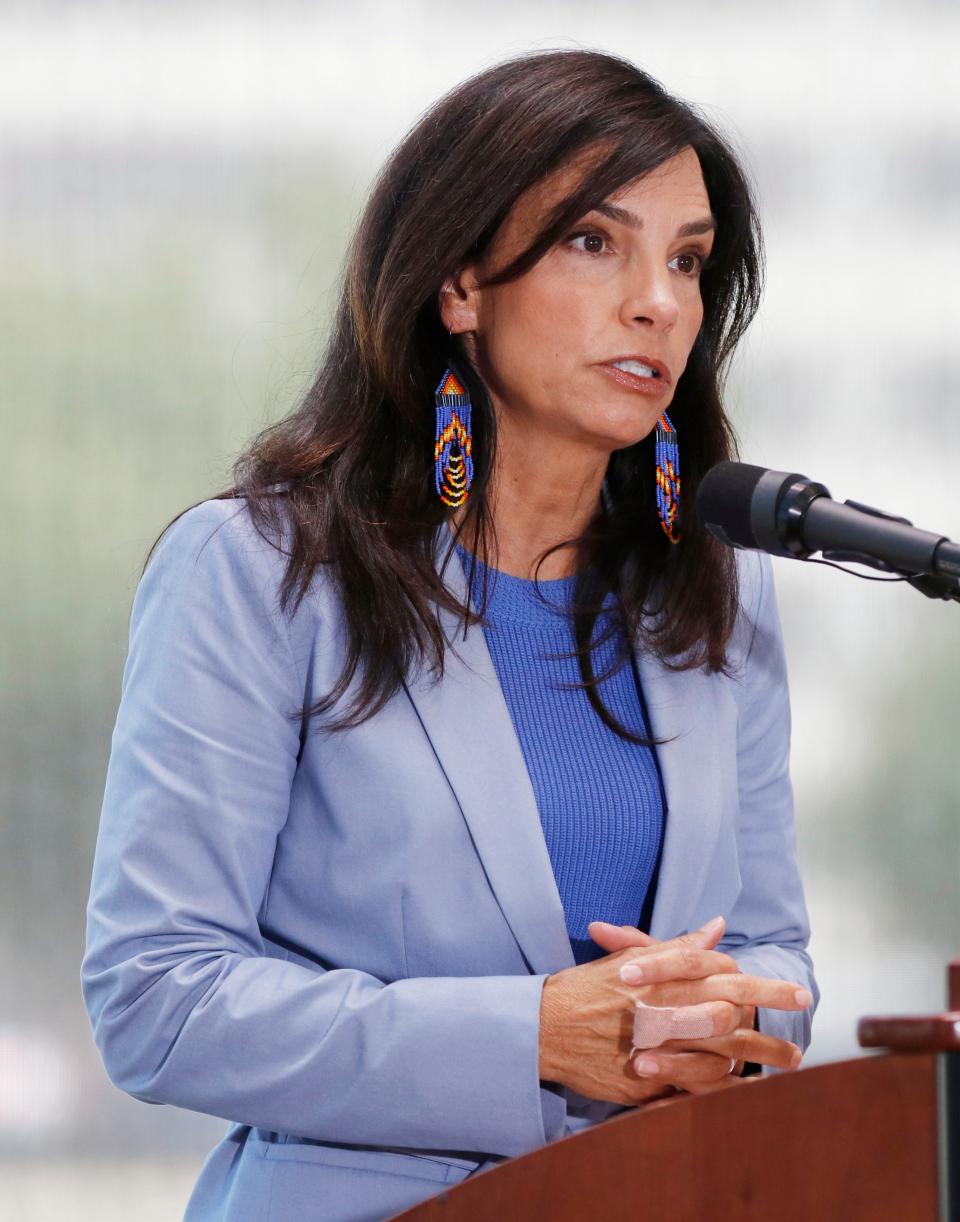
But Johnson Billy quickly stepped down after Stitt and tribal leaders became embroiled in a dispute over the central state-tribal gaming compact.
“It has become increasingly clear you are committed to an unnecessary conflict that poses a real risk of lasting damage to the state-tribal relationship and to our economy,” Johnson Billy told Stitt in her December 2019 resignation letter.
Ten months later, Stitt announced the title would go to Secretary of State Brian Bingman, who would counsel the governor on Native affairs on top of his other duties.
More: No timeline for sports betting in Oklahoma, tribal gaming officials say
Bingman, who is a Muscogee Nation citizen, served as a dual secretary of state and Native American Affairs until Wednesday, when he resigned to run for the Corporation Commission.
Stitt has no plans to promote Nofire to a secretary post as a result of Bingman’s exit, said the governor's communication director, Abegail Cave. The move would require approval from the Senate.
The governor currently is locked in a dispute with legislative leaders over how the state should work with tribes. Stitt sued Senate Pro Tem Greg Treat and House Speaker Charles McCall in July to try to block the Legislature from extending state-tribal compacts without him. Then on Thursday, he asked lawmakers to approve two gaming compacts he had negotiated with tribes outside of the central state-tribal agreement — something he has drawn wide criticism for attempting in the past.
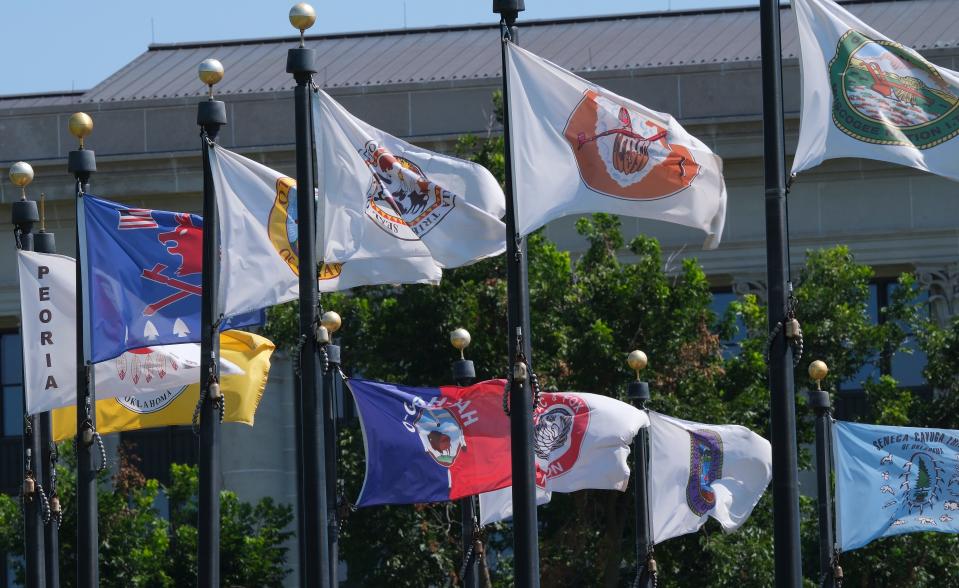
More: What to know about Oklahoma's newest tribal compact dispute
As liaison, Nofire will have a central role in those compact talks. He said he sees himself as someone who can help ensure tribal leaders and the governor are meeting, “so that way it’s fair to all 4 million Oklahomans whenever we have agreements being made.”
During his time in the state Legislature, Wesselhoft sat on the committee that monitors compacts between the state and tribes. He said he believed Stitt would improve those talks. But four years later, he has seen no progress.
“We expected great things from the governor in making the relationship between the tribes and the governor smoother and better,” he said, “but it went backwards.”
Molly Young covers Indigenous affairs. Reach her at mollyyoung@gannett.com or 405-347-3534.
This article originally appeared on Oklahoman: Oklahoma tribal liaison compared Cherokee government to evil 'beast'

